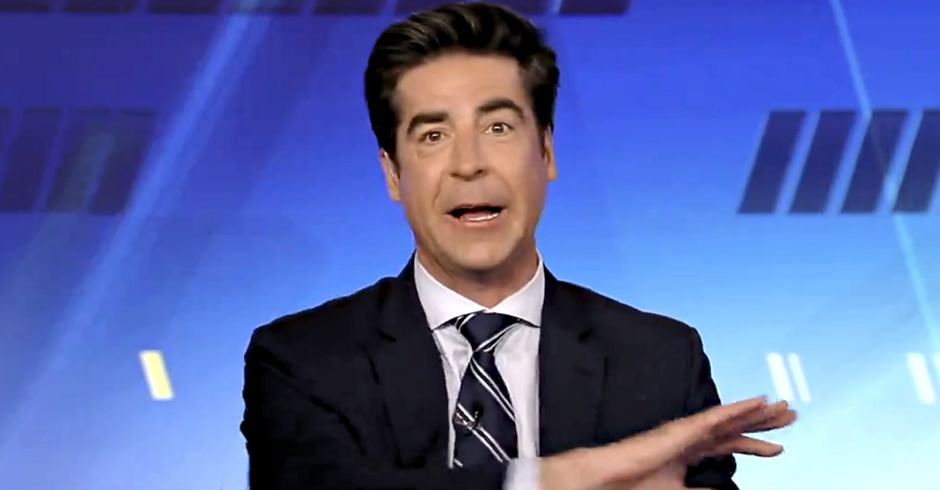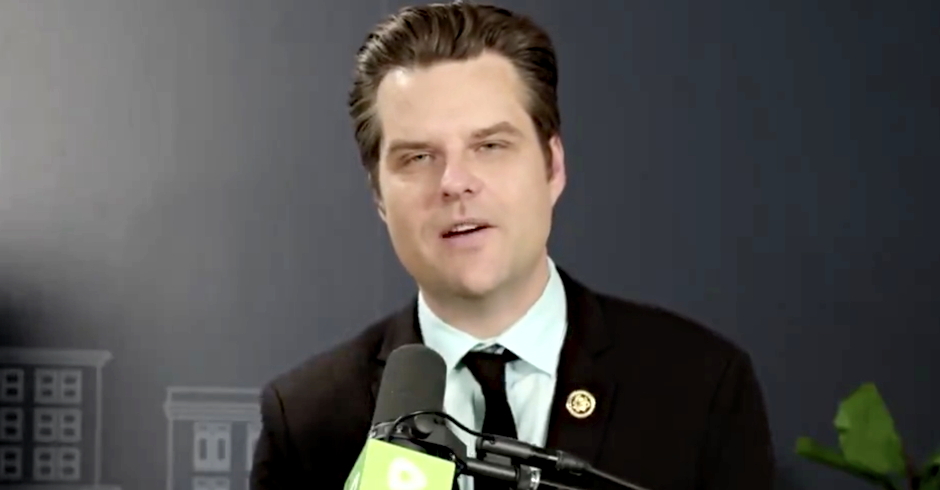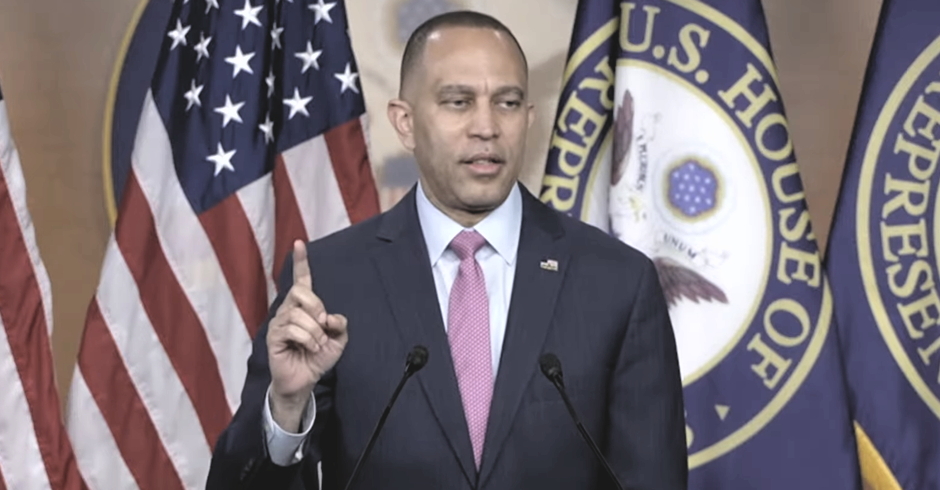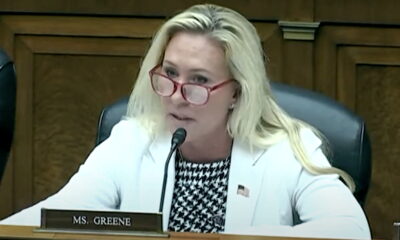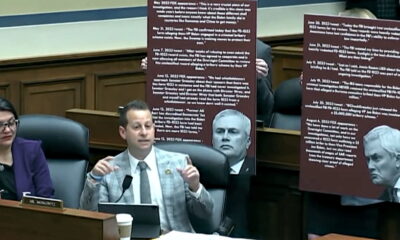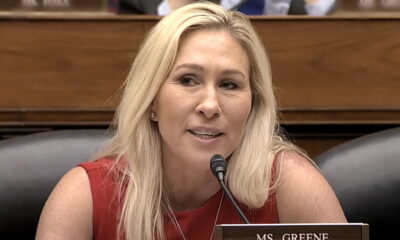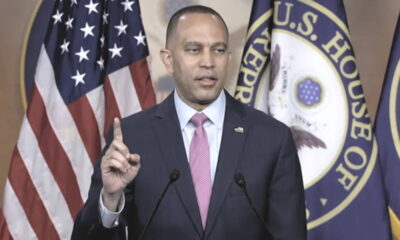News
Germany To Compensate Gay Men Convicted Under Nazi-Era Ban On Homosexuality
Plan Will Appropriate 30 Million Euros For Those Punished Under Paragraph 175; Other Countries Also Consider Apologies and Pardons
In a plan announced Oct. 9 by Justice Minister Heiko Maas, Germany will appropriate 30 million Euros (about $37 million) to compensate homosexuals who were convicted under a notorious law that criminalized consensual homosexual acts.
The law, known as Paragraph 175, was in effect from 1871 until 1994, though it ceased being enforced in the late 1960s. It was a cornerstone of the Nazi persecution of homosexuals, but survived to continue to inflict misery on gay men after World War II.
From its inception to its repeal in 1994, almost 150,000 men were convicted under Paragraph 175. About 50,000 were convicted after World War II, which is the period covered by the plan announced on Oct. 9. The law ceased being enforced in East Germany in 1957 and in West Germany in 1969.
It is believed that at least 5,000 living individuals are eligible for personal compensation under the proposal. Justice Minister Maas said that the amount of compensation would “depend on concrete individual cases,” and would take into consideration the length of sentences imposed and served.
The proposal will also void the criminal records of all 50,000 men convicted under Paragraph 175 after World War II. (Those who were convicted under the law during the Nazi era were pardoned in 2002.)
https://www.youtube.com/watch?v=PXRhlV3rCmA
The proposal to compensate homosexuals convicted under Paragraph 175 was prompted by a study commissioned by Germany’s Anti-Discrimination Authority. When the study was released in May 2016, the head of the Authority, Christine Lüders, said that those who had been convicted under the law suffered a violation of “the very core of their human dignity” and, therefore, deserved compensation.
In response to the study, Justice Minister Maas promised that his ministry would draft legislation to quash convictions and provide compensatory arrangements. He added that “the German state has burdened itself with guilt because it had made difficult the lives of so many people.”
In August, the opposition Greens Party prodded the government to act quickly to implement the recommendations of the study commissioned by the Anti-Discriminatory Authority. Bundestag Deputies Katja Keul and Volker Beck drafted their own compensation plan. In the preamble, they said, “An end must be put to the continuing scandal that men in the Federal Republic of Germany have to live with the stigma of having been convicted because they were homosexual.â€
Paragraph 175
Paragraph 175 was incorporated into the German penal code in 1871, when Wilhelm I, King of Prussia, united the disparate German kingdoms into the federal state of Germany. He incorporated Prussia’s prohibition of homosexual acts into the new German penal code as Paragraph 175. The law criminalized “An unnatural sex act committed between persons of the male sex or by humans with animals.†Violation of Paragraph 175 was punishable by up to four years in prison.
During the Weimar Republic (1919-1933), Berlin emerged as a homosexual mecca, with a very visible LGBT culture and a new homosexual emancipation movement. During this brief respite Paragraph 175 was seldom enforced and activists mounted a concerted but unsuccessful attempt to repeal the law.
In 1933, when Adolf Hitler was sworn in as chancellor of Germany, his new government moved quickly to stamp out the “vice†of male homosexuality and to reverse the gains made by homosexual emancipation activists during the Weimar period.
Soon after coming to power, the Nazis plundered Magnus Hirschfeld‘s Institute for Sexual Science, which had been founded in 1919 and served as the intellectual center of the homosexual emancipation movement. The Nazis destroyed the Institute’s extensive library and archives.
Early efforts toward eradicating an openly homosexual culture from Germany included closing bars and clubs where gay men and lesbians gathered, banning homophile publications such as Die Freundschaft (Friendship), and encouraging citizens to denounce homosexuals as “asocial parasites.”
On June 30, 1934, the “Night of the Long Knives,” Hitler ordered the assassination of the leaders of the SA, the Nazi paramilitary group headed by Ernst Röhm, who was widely known as a homosexual. In justifying this purge, which helped Hitler consolidate his control of the military, the Nazi leader specifically evoked Paragraph 175 to explain the massacre as a cleansing of the party of degenerates.
In 1935 the Ministry of Justice revised Paragraph 175, expanding the law to punish a broad range of “lewd and lascivious” behavior between men. The revisions provided a legal basis for extending Nazi persecution of homosexuals.
German criminal courts had traditionally interpreted the word “unnatural” (“widernatürlich”) in the original Paragraph 175 to mean that the prohibited offense was anal intercourse. Hence, prosecutions required proof of penetration. But with the changes introduced in the new Paragraph 175, Nazi-era courts ruled that the offense no longer required such proof, and that any sexual act fulfilled the requirements of the statute.
This revision of Paragraph 175 also opened the door to prosecution for even relatively insignificant forms of erotic interaction between males, including kissing, holding hands, and mutual masturbation. By 1938, German courts ruled that any contact between men deemed to have sexual intent, even “simple looking” or “simple touching,” could be grounds for arrest and conviction.
Enforcement of the criminal law fell to the Criminal Police and the Gestapo, under the leadership of Heinrich Himmler. The Criminal Police and the Gestapo worked in tandem, occasionally in massive sweeps but more often as a follow-up to individual denunciations.
The Gestapo instructed local police forces to keep lists of all men suspected of engaging in homosexual activities. The Nazis used these so-called “pink lists” to hunt down individual homosexuals during police actions.
According to Nazi documents, from 1935 to 1945, approximately 100,000 men were arrested for homosexuality under Paragraph 175. Of these, nearly 78,000 were arrested between 1936 and the outbreak of World War II in 1939.
After Germany annexed Austria in 1938, homosexuals there endured a similar reign of terror.
Just as arrests rose precipitously after the 1935 revisions of Paragraph 175, so, too, did conviction rates, reaching more than ten times those of the last years of the Weimar Republic. Around 50,000 men were sentenced by Nazi-era courts to regular prisons. Additionally, as many as 15,000 men who were convicted under Paragraph 175 were sent directly to concentration camps.
Once in the camps, homosexual men suffered high death rates from overwork, starvation, physical brutality, or outright murder.
Some of the homosexual concentration camp inmates were subjected to medical experiments designed to “cure†homosexuality. These experiments caused illness, entailed mutilation (including castration), and often resulted in death, yet yielded no scientific knowledge.
https://www.youtube.com/watch?v=kSdId1PqV1M
After the war, homosexual survivors of the concentration camps were not seen as political prisoners but rather as criminals under Paragraph 175, which remained in effect even after liberation.
Under the Allied Military Government of Germany, some homosexuals were forced to serve out their terms of imprisonment, regardless of the time already spent in concentration camps. All were excluded from reparations by the German and Austrian governments.
When the international community sought justice for the victims of Hitler’s Germany at the Nuremberg Trials of 1946, neither the atrocities committed against homosexuals nor Paragraph 175 was mentioned.
After World War II, Paragraph 175 remained in the legal codes of  East and West Germany, as well as of Austria. East Germany ceased prosecuting individuals for consensual homosexual acts in 1957 and repealed the Nazi version of Paragraph 175 in 1967.  West Germany repealed the Nazi version of Paragraph 175 in 1969 and ceased prosecuting consensual homosexual activity the same year. (Austria repealed its version of Paragraph 175 in 1971.)
However, the original Paragraph 175 was not repealed until 1994, four years after the reunification of Germany.
For many years after the war, Holocaust researchers largely ignored the persecution of homosexuals by the Nazis, but in the 1980s the histories of the gay men imprisoned under Paragraph 175 by the Nazi government began to be documented and placed in the larger context of the Holocaust.
The first public commemoration of the homosexuals murdered by the Nazis came in a May 8, 1985 speech by West German President Richard von Weizsäcker marking the fortieth anniversary of the end of World War II.
In 1999, the documentary film by Rob Epstein and Jeffrey Friedman, Paragraph 175, was released. The film used new and archival film, family photographs, and accounts of a half-dozen elderly survivors of the concentration camps to tell the history of gay men under Nazi rule.
https://www.youtube.com/watch?v=a1-EjfBmp9c
In the same year, Germany held its first official memorial service for the homosexual victims of the Holocaust at the former Sachsenhausen concentration camp.
In December 2000, the government issued an apology for the prosecution of homosexuals in Germany after 1949 and agreed to recognize gay men as victims of the Third Reich.
The increased interest in the persecutions of homosexuals during the Nazi era led to the voiding of the criminal records of those convicted under Paragraph 175 by the Nazis in 2002.
At the end of 2003, the Bundestag appropriated money to build a monument commemorating homosexual victims of Nazi persecution. The Memorial, located in Berlin’s Tiergarten, near the Memorial to the Murdered Jews of Europe, was opened in 2008 by Mayor Klaus Wowereit, who had come out as gay before his election as mayor in 2001 with the statement, “Ich bin schwul, und das ist auch gut so†(I’m gay, and that’s thatâ€). Sometimes known as the “Gays Kissing Memorial” because of its video of two men kissing, it also  features a history of the persecution of gay men under Paragraph 175.
Other public memorials commemorating the suffering of glbtq people in the Holocaust include monuments in Amsterdam, Frankfurt, San Francisco, Sydney, Barcelona, and Tel Aviv.
In 2003, the United States Holocaust Memorial Museum presented a major traveling exhibit entitled “The Nazi Persecution of Homosexuals, 1933-1945.” A version of the exhibit is on-line at the museum’s website.
The Schwules Museum in Berlin has also commemorated the victims of Nazism.
Other Countries
Germany was not the only nation to expunge the criminal records of LGBT individuals convicted under unjust laws in 2002.
That honor is shared with Spain, which in 2002 wiped clean the criminal records of gay men and lesbians who were persecuted by the government of dictator Francisco Franco, who ruled Spain from 1939 until his death in 1975. Under Franco’s murderous regime, thousands of homosexuals (mostly men, but some lesbians as well) were jailed, sent to re-education camps, or locked up in mental institutions, where some were subjected to aversion therapy. Laws prohibiting “public scandal” or “social danger” gave cover to the persecution.
Although the law passed in 2002 by Spain’s Parliament was supposed to include compensation, reparations were not appropriated until 2007, when the Law of Historical Memory, which recognized all the victims of the Franco regime, was passed.Â
During the twentieth century, states and territories in Australia began repealing their sodomy laws, some of which prescribed truly draconian penalties for consensual homosexual activity. The first jurisdiction to repeal its law was the Australian Capital Territory in 1973, the last was Tasmania in 1997.
There is currently a movement underway to expunge the criminal records of those convicted under sodomy and related laws in Australia. So far, four of Australia’s nine jurisdictions (South Australia, New South Wales, Victoria, and the Australian Capital Territory) have passed laws permitting those convicted of consensual adult same-sex activity to apply for their convictions to be expunged. Others are expected to follow soon.
New Zealand, which repealed its prohibition of consensual homosexual acts in 1986, allows those who were convicted under the old laws to petition individually for the expungement of their criminal records.
Prime Minister Justin Trudeau of Canada recently announced that he plans to apologize on behalf of all Canadians to those who were imprisoned, fired from their jobs, or otherwise persecuted for their homosexuality. As part of this apology, Trudeau is expected to submit a plan by which convictions under laws criminalizing same-sex activity will be expunged or pardoned. Those who were dismissed from public service or the military because of their homosexuality will also receive an apology. In addition, it is expected that a compensation program will be proposed.
Trudeau is also expected to recommend a posthumous pardon for Everett Klippert (1926-1996), the last Canadian to be arrested, tried, convicted, and sentenced to prison for homosexuality before its legalization in 1969, a reform led by Justin Trudeau’s father, Pierre Eliot Trudeau. Klippert’s case, especially the fact that he was sentenced to life in prison as a “dangerous sex offender” for no reason other than he was a homosexual, led directly to the legalization of homosexuality in Canada, though he was not released from prison until two years after the reform.
On Dec. 23, 2013, Queen Elizabeth II, at the urging of the government of the United Kingdom, officially pardoned Alan Turing, one of the greatest mathematical thinkers in history and the father of modern computing, whose work on cracking the German Enigma code is said to have shortened World War II.
Turing was awarded an OBE (Officer of the British Empire) in 1945 and elected to the Royal Society at an unusually young age in 1951. But in 1952, when he was deputy director of the Royal Society Computing Laboratory at the University of Manchester, his life was turned upside down.
When he reported the burglary of his home by a working-class young man with whom he was involved, he was arrested and prosecuted for what was then known under British law as “Gross Indecency,” a section of the Criminal Law Amendment Act of 1885 (also known as the Labouchère Amendment), under which Oscar Wilde had also been charged in 1895.
Turing was offered a stark choice: go to prison or submit to the administration of the hormone estrogen. This procedure was known as “organo-therapy,” a form of aversion therapy designed to destroy his sex drive. It was a type of chemical castration.
The administration of the female hormone did nothing to curb Turing’s homosexual desires, but it left him impotent. He also developed breasts. Two years after his arrest, and one year after this coerced and barbaric “therapy,” Alan Turing killed himself by biting into an apple laced with cyanide.
In 2009, Prime Minister Gordon Brown issued an apology on behalf of the government in which he described Turing’s treatment as “horrifying” and “utterly unfair.” But scientists and gay-rights advocates wanted the government to clear him completely of the gross indecency conviction.
A sustained campaign by scientists, including Stephen Hawking and Richard Dawkins, and a petition signed by more than 37,000 British citizens culminated in Queen Elizabeth’s royal pardon.
In announcing the pardon, Justice Secretary Chris Grayling said Turing deserved to be “remembered and recognised for his fantastic contribution to the war effort” and not for his later criminal conviction. “His later life was overshadowed by his conviction for homosexual activity, a sentence we would now consider unjust and discriminatory and which has now been repealed,” he said. “A pardon from the Queen is a fitting tribute to an exceptional man.”
But as Prime Minister Brown noted in his apology in 2009, Turing’s treatment was by no means unique: “Alan and the many thousands of other gay men who were convicted, as he was convicted, under homophobic laws, were treated terribly. Over the years, millions more lived in fear of conviction. I am proud that those days are gone and that in the past 12 years this Government has done so much to make life fairer and more equal for our LGBT community. This recognition of Alan’s status as one of Britain’s most famous victims of homophobia is another step towards equality, and long overdue.”
In a commentary at PinkNews, activist Chris Ward said that while the pardon was very good news, the government needed to go further and pardon everyone who was convicted under the unjust laws that led to Turing’s demise.
Ward argued that Turing should not have been pardoned because of his exceptional achievements, but because the law under which he was convicted was unjust: “the notion that Turing deserved his pardon for the things he did rather than because the conviction was wrong states plainly and clearly that if you were in love at that time with somebody of the same sex and didn’t happen to be a war hero or a mathematical genius, then you remain a criminal. The campaign for justice is far from over.”
Pressure to pardon all those who suffered under homophobic laws gained traction with the release in 2014 of the film based on Turing’s work on the Enigma code,  Morton Tyldum’s The Imitation Game.Â
https://www.youtube.com/watch?v=S5CjKEFb-sM
Turing’s family endorsed the efforts to pardon the other 49,000 men who had been convicted under the gross indecency statute. As Turing’s grand-nephew told The Independent, “Justice must be served to everyone, regardless of whether they cracked the Enigma Code or not. I cannot understand how our current Government could pardon one person who was so badly treated, and not the others.”
More than 600,000 people signed a petition to pardon all those who were convicted under anti-gay laws.Â
Finally, on Sept. 21, 2016, Prime Minister Theresa May announced her commitment to introducing an “Alan Turing law” that will pardon thousands of gay men convicted under historic gross indecency crimes. The legislation, a government spokesman said, will effectively “act as an apology” to those who suffered under homophobic laws.
Â
Â
Â
Â
Enjoy this piece?
… then let us make a small request. The New Civil Rights Movement depends on readers like you to meet our ongoing expenses and continue producing quality progressive journalism. Three Silicon Valley giants consume 70 percent of all online advertising dollars, so we need your help to continue doing what we do.
NCRM is independent. You won’t find mainstream media bias here. From unflinching coverage of religious extremism, to spotlighting efforts to roll back our rights, NCRM continues to speak truth to power. America needs independent voices like NCRM to be sure no one is forgotten.
Every reader contribution, whatever the amount, makes a tremendous difference. Help ensure NCRM remains independent long into the future. Support progressive journalism with a one-time contribution to NCRM, or click here to become a subscriber. Thank you. Click here to donate by check.
 |

